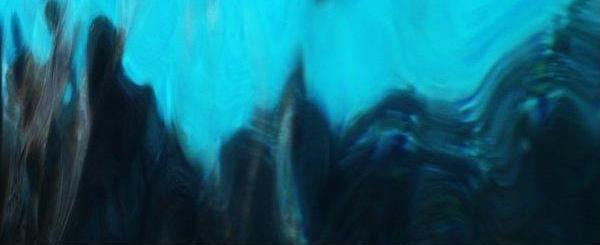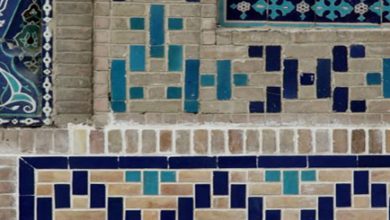YUNUS AS

Yunus AS was immersed in layer upon layer of suffocating darkness – that of the belly of the whale, the darkness of the sea and the darkness of the night. One can only imagine the nauseating stench Yunus AS had to bear with every breath he drew within the confines of the whale’s digestive cavity. Allah only knows whether and what he ate and drank during this time. But what could he have done? Even if he escaped from the whale, he would have drowned immediately.
Visualise yourself, where any screams for help would be entombed into eternal silence by the currents of the deep. Even with all the modern technology, submarines and tracking equipment available today, rescue under such conditions would be impossible. How does a normal person hold on to life, hope and sanity under such surreal and terrifying circumstances?
Yet, such was the mettle and faith of Yunus AS. One of his distinct qualities was that he used to make copious amount of tasbih to Allah. He realized that he had erred and in doing so, had provoked the anger of Allah. Therefore he made the famous supplication of “la ila ha illa anta subhanaka inni kuntu minaz-zalimin“:
Allah says: “And [mention] the man of the fish, when he went off in anger and thought that We would not decree [anything] upon him. And he called out within the darknesses, “There is no deity except You; exalted are You. Indeed, I have been of the wrongdoers. ” (21:87)
Yunus AS repeated this humble supplication countless times over the course of the next three days and nights, and repented for his disobedience. According to hadith, if one makes this supplication to Allah, He will accept the prayer, and if one asks Him with that Name, He will grant the supplication. It is noted that there is no name of Allah mentioned in the supplication, but rather, it is contained in the all encompassing word “You”, a concise description which has broad implications denoting the omnipotence of Allah to the negation of all else. It is also reported in a separate hadith that no Muslim will make any supplication with this supplication about any topic, but that Allah will accept it from him.
Forgiveness and Healing
Allah accepted the supplication of Yunus AS. The Qur’an says: “And had he not been of those who exalt Allah, he would have remained inside its belly until the Day they are resurrected.” (37:143 – 37:144) It is postulated that had Yunus AS not glorified Allah and confessed his sins with repentance, he would have stayed in the belly of the whale until the Day of Judgment, and would have been resurrected from there.
Allah is ever merciful and pardoned him: So We responded to him and saved him from the distress. And thus do We save the believers. (21:88) Note the criteria that only believers will be saved in this world and the hereafter. Thus forgiven, Yunus AS was reinstated into the ranks of the righteous.
Allah also released Yunus AS from his underwater prison: But We threw him onto the open shore while he was ill. And We caused to grow over him a gourd vine. (37:145 – 37:146).
By the command of Allah, the whale regurgitated Yunus AS and unceremoniously dumped him onto the beach. Weakened, in agony and with his skin eroded from the digestive acids of the whale’s belly, Allah allowed Yunus’s AS rehabilitation to begin. A gourd vine, which leaves were soft to the touch and possessed medicinal qualities, wrapped him protectively, provided cool shade and healed him. Abu Hurairah RA reported that wild goats were brought to him, from which he drank their milk and slowly regained his health.
It is reported that his community flourished and remained believers, until once again, through the passage of time, corruption set in and detracted the following generations from the belief in Allah.
Of Yunus AS, it is reported that the Prophet SAW said: “Nobody should give me preference over Yunus ibn Matta.” (Sahih Bukhari)
Lessons Learnt
Obligation to spread Islam
When Muhammad SAW was born, it is reported that Shaitan howled in despair. A Messenger had been born to lead his people to paradise, because his nation was to be entrusted as the continuing messengers of Islam until the end of time. This is the honour and responsibility bestowed upon all Muslims. Yet we take this duty lightly, and even reject this gift. We should be working for Allah and remember the reward that Allah is giving us. The anticipation of Allah’s pleasure should override all our personal desire.
Allah shows through this story that when it comes to guiding others, it is not the ability of the person that reaps the results. If we want to propagate Islam, we must learn the correct manner and give thanks to Allah that He selected us. We should deal with others with mercy and compassion, and leave the result to Allah. The spreading of the faith has nothing to do with our own intellect or eloquence. Instead, we do our best, and perform our duties in the way demonstrated by Prophets and Messengers and instructed in Qur’an and sunnah.
All the guidance is from Allah, and Prophets, Messengers and spreaders of Islam are merely instruments. This distinction is crucial and prevents us from being self congratulatory for any success. After all, Allah is able to make the entire human race worship Him if He so willed it. This is an often repeated theme in the Quran – “And had your Lord willed, those on earth would have believed – all of them entirely. ” (10:99) However, He has given human beings the faculty of choice, as a test to sift out those that are the best in deeds.
As Muslims, we should feel an aching in our hearts for those we are unable to lead to Islam. Allah gently reminds us: Then perhaps you would kill yourself through grief over them, [O Muhammad], if they do not believe in this message, [and] out of sorrow (18:6). We are obliged to do the utmost because today many of us only give the leftovers of our time and effort towards this duty. If we want Allah to open for us, we have to give Allah our best.
All inviters also understand that wisdom and guidance is only from Allah, granted to those He wants in the manner He wants. This was the error in judgment that Yunus AS had made. Allah judges our efforts, but the results are in His Hands.
The Power of Zikr and Dua
The famous dua of Yunus AS has already been discussed. However, as etiquette, we cannot make this prayer and demand immediate results from Allah in the manner we want. Rather, we have to be patient and wait for the reward from Allah. Unfortunately, human beings have the tendency to follow their own desires even when it comes to making supplications.
It is said that a reason that Allah accepted the dua of Yunus AS was because he was constantly engaged in zikr day and night, which is a hint to us on increasing the effectiveness of our dua.
Also, ponder on the complete humility of the language in the supplication. Yunus AS admitted full responsibility and accountability for his wrongdoing, going against our arrogant human impulses to blame others and make excuses whenever we make mistakes.
Calamities and trials do not mean one is a sinner. On the contrary, they can elevate us. Calamities teach sincerity, manner and patience. Underlying all this, one has to remember that the only one who can lift such calamity is Allah. He can rescue us from every situation and every impossible circumstance no matter how tightly we have been backed into a corner. The same way that we should never underestimate the power of Allah to place us in surprising and unpleasant conditions, we should not underestimate His ability to grant us relief.


![Photo of ADAM AS [ PART 1]](/wp-content/uploads/2020/09/d6086de322f98f66cc694f32ea284557_XL_0-390x220.jpg)
![Photo of ADAM AS [ PART 2 ]](/wp-content/uploads/2020/09/106117794.Gu9ZCkGy-390x220.jpg)
![Photo of NUH AS [ PART 1]](/wp-content/uploads/2020/09/130243396.pTC5gkej-390x220.jpg)
One Comment